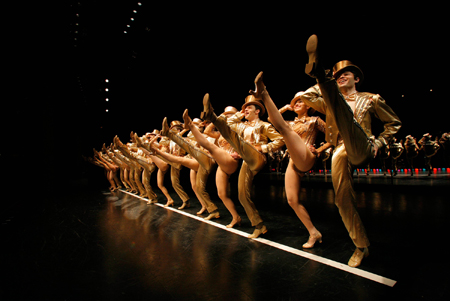[This is the third in a series of dispatches relating to the New Directors/New Films series, running between March 25 and April 5 at MOMA and the Film Society of Lincoln Center.]

An actor friend and I recently entered into a heated but civil disagreement about his career. My friend insisted that it was now the time to self-promote and self-aggrandize like there was no tomorrow. I pointed out to my pal that he had talents that simply hadn’t yet been recognized by the right people, and that getting noticed simply wasn’t something he could calculate. He had the goods, but I had grave concerns that his work would be marred by solipsism, whether real or perceived. He had the obligation to stay working — whether it be dinner theater, off-Broadway, or top-notch production — and to practice as much humility and tenacity and dignity as he could under the circumstances. The acting business involves a lot of waiting, many nos, and an array of judgments which simply do not exist in any other occupation. Small wonder then that, when an actor does manage to secure himself a top perch, he is granted an unprecedented amount of assistants and press protection. For by the time an actor has made it this far, the relatively anonymous artist who struggled for years has capitulated his relative obscurity. But isn’t the acting profession something of a devil’s bargain? You entertain a crowd, but you do so at the expense of presenting your true self. And you do so knowing that you will have to fight tooth and nail to keep the rent paid and the work coming. Not many people can do this, but so many are driven to expend every ounce of spare energy into seizing a small scrap of the stage.
The documentary Every Little Step examines these often underreported realities with the casting sessions for the 2006 A Chorus Line revival. Filmmakers James D. Stern and Adam Del Deo were apparently granted backstage access as the casting stretched into endless callbacks over many months. I do not know if there were any quids pro quo arrived at during this documentary journey, but there’s certainly a meta irony given the show in question. As audience-friendly as A Chorus Line and Every Little Step both are, Stern and Del Deo are to be commended for exposing a handful of the profession’s ugly little truths. There is, for example, some concern about an actress up for the role of Connie. She was born in Japan, but can she nail the right dialect if she wasn’t born in the States? A cocky dancer and choreographer named Tyce Diorio boasts to the camera that he wants his own television show. But his clear hubris is immediately observed by the casting team and he is dumped. One dancer is asked to reproduce what she did last summer, but cannot recall specifically what it was and is too nervous and shell-shocked to ask.
The film is careful to expose what lies in the future for these young and hungry gypsy aspirants, but it doesn’t always present its mini-narratives holistically. One dancer’s father describes a moment in his early forties when both of his knees blew out. He still tried to dance anyway and found himself backstage with his boots soaked in blood. But what did he do when he knew he couldn’t dance? That might have been another documentary altogether, but this intriguing yet unfulfilled story demonstrates the film’s weakness in trying to tackle too much.
Of course, as every good Broadway aficionado knows, A Chorus Line was one of the first major Broadway productions to be workshopped, with Michael Bennett leading a recorded series of confessions after midnight that served as the transcribed template. The film does not quibble with the controversial claim that Bennett was the sole man behind the show, nor does it quite expose Bennett’s tendency to control every project that he was involved with.
I likewise found myself wondering how much Bob Avian (the revival’s director) was playing up his kindness before the cameras. He is presented here as a gruff, no-nonsense, barrel-chested administrator, his team shuttling around and encouraging prospective applicants. But Avian is capable of being genuinely moved. When Jason Tam delivers his gut-wrenching monologue as Paul, both the show’s production team and the audience watching this film know that he will get the part. So perhaps Every Little Step functions on three levels: the Broadway audience who will see the show is “entertained” by dancers begging for their parts (lightened somewhat by the Marvlin Hamlisch’s famous bouncer, “Dance: Ten; Looks: Three”), the audience who will see this film is “entertained” by dancers begging for their parts (lightened somewhat by crowd favorites getting the role), and the director being photographed is “entertained” by prospective dancers while making often brutal decisions (his duties lightened somewhat by a few on-camera moments that suggest he’s not that bad of a guy).
I was less taken with the film’s clear promotion of A Chorus Line, but quite engaged by the process of auditioning itself. Hearing a director describe the ideal Val as someone with “a truck driver’s mouth, but who’s really a sweetheart” is a sentiment you might find on any promotional pamphlet, as is Hamlisch himself describing yet again how the title “Tits and Ass” transmuted into “Dance: Ten; Looks: Three.” But seeing a director quietly beseech an actor on stage to get a performance right, because there may very well be some rejection that he must uncomfortably come to terms with, is the mark of a decent documentary. I wished Every Little Step had pursued more moments in the latter category. But a struggling actor may find some of the film’s quiet revelations engaging — in large part because the actor doesn’t always see himself from a camera’s third-person perspective.